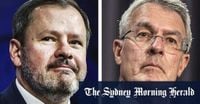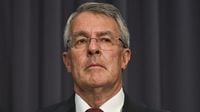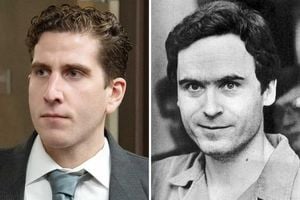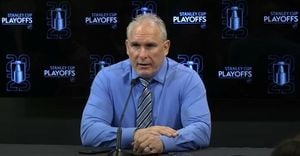In the wake of a resounding election victory, the Labor Party is facing an unexpected internal crisis as Attorney-General Mark Dreyfus and Industry Minister Ed Husic find themselves on the chopping block. Reports indicate that Dreyfus is in a fierce battle to retain his position as the party's top lawyer, with factional dynamics shifting dramatically just days after the federal election.
On Saturday, May 3, 2025, Dreyfus celebrated a significant win in his seat of Isaacs, claiming an absolute majority of 50.1 percent of primary votes along with a 5 percent two-party preferred swing. "It’s a fantastic night. A wonderful night for Labor," he told the Star Journal, expressing his delight at the party's prospects under Prime Minister Anthony Albanese. He emphasized that voters had "rejected the fear and hatred and division of Peter Dutton," embracing Albanese's vision for a fairer Australia.
However, the mood has soured as the new Labor Caucus prepares for its first meeting on Friday, May 9, 2025. Reports have surfaced that Dreyfus is being pushed out by his own Victorian Right faction, led by Deputy Prime Minister Richard Marles. This faction has reportedly agreed to replace him with Sam Rae, a backbencher from the seat of Hawke. Dreyfus, a seasoned politician who has served as Attorney-General since 2022 and previously in 2013, is reportedly fighting back to maintain his role.
As the factional leaders convened in Canberra, the atmosphere was tense. The meeting, which was initially intended to be a celebratory occasion following the election, has turned into a battleground for power within the party. Dreyfus has reached out to his colleagues and appealed to Albanese to keep his position, but the faction's resolve appears firm.
Meanwhile, the decision to oust Dreyfus and Husic has sparked outrage among some members of the party. Critics argue that the moves reflect chaos and disunity just as Labor begins its second term in power. One NSW MP expressed frustration, stating, "How do we explain this to the public? It looks like chaos and disunity to knife two ministers whose performance has never been in question."
Husic, who has been a prominent figure in the party, is also facing the threat of being sidelined. Party insiders have noted that the push to remove him stems from an overrepresentation of the New South Wales right faction at the top of the government. Supporters of Husic have voiced concerns that Labor cannot afford to appear as though it is forcing out senior Muslim and Jewish MPs so soon after a major election.
The factional war has raised questions about the future of the Labor government, with some members fearing that the internal strife could overshadow the party's achievements. As factions vie for control, the Left's recent electoral success has given it more leverage, complicating the dynamics within the party.
Albanese has acknowledged the need for stability, but he has also emphasized the importance of collective decision-making. "No individual is greater than the collective — that includes myself," he stated during a recent interview. This sentiment underscores the challenges he faces as he navigates the complexities of party politics.
The upcoming caucus meeting is expected to address the distribution of cabinet positions, with the swearing-in of the new ministry anticipated as early as the following week. With 20 cabinet positions and 10 outer ministries to fill, Albanese will need to balance the demands of various factions while maintaining party unity.
Among the names being floated for promotion alongside Rae are Daniel Mulino and Tim Ayres, both of whom are seen as potential beneficiaries of this factional reshuffle. Ayres, in particular, has been identified as a strong candidate for elevation due to his close ties with Albanese and his standing within the party.
As the Labor Party grapples with these internal challenges, the outcome of the caucus meeting could set the tone for its governance in the coming term. The factional maneuvering is not just a reflection of individual ambitions; it highlights the broader ideological battles within the party as it seeks to define its identity moving forward.
In a political landscape that is increasingly competitive, the Labor Party's ability to present a united front will be crucial. The stakes are high, and with the Right faction pushing for change, Dreyfus's future hangs in the balance as he fights to retain his position amidst a backdrop of uncertainty and division.
As the Labor Party prepares for what promises to be a contentious caucus meeting, the implications of these factional battles will resonate beyond the walls of Parliament. The decisions made in the coming days will not only affect the careers of Dreyfus and Husic but could also shape the party's trajectory as it navigates the challenges ahead.






